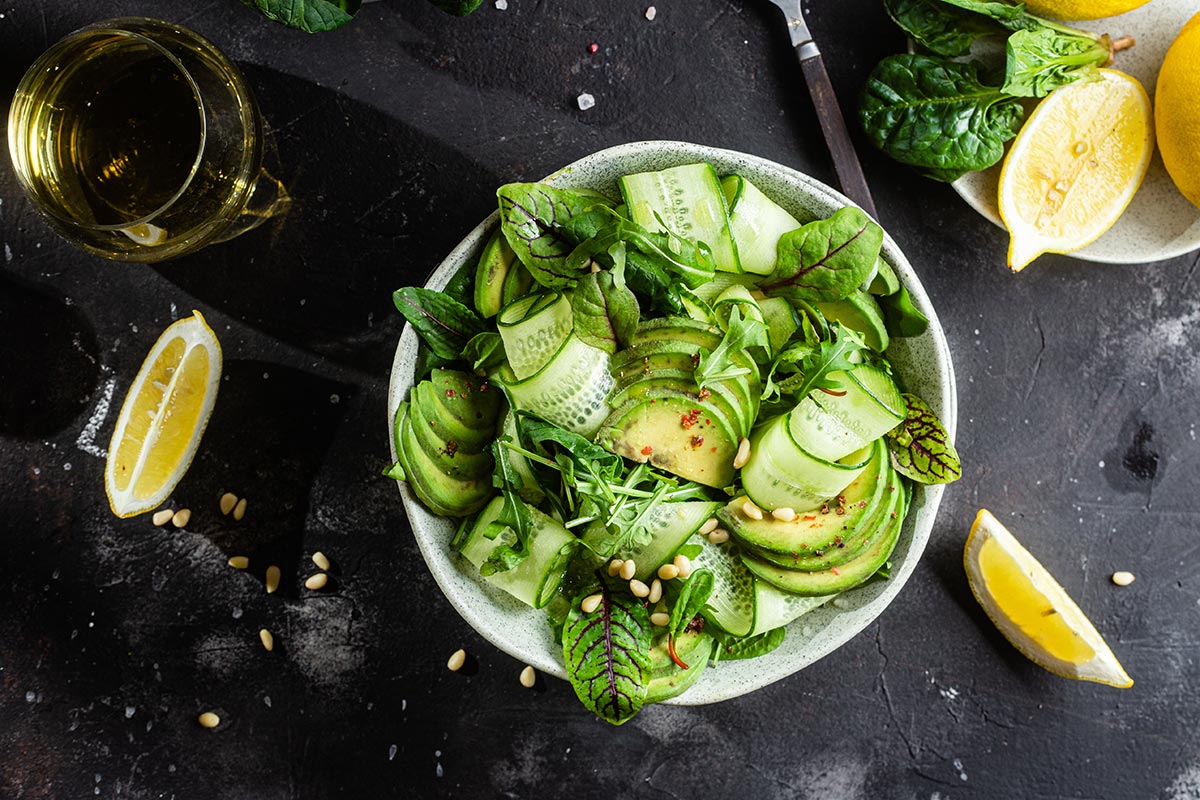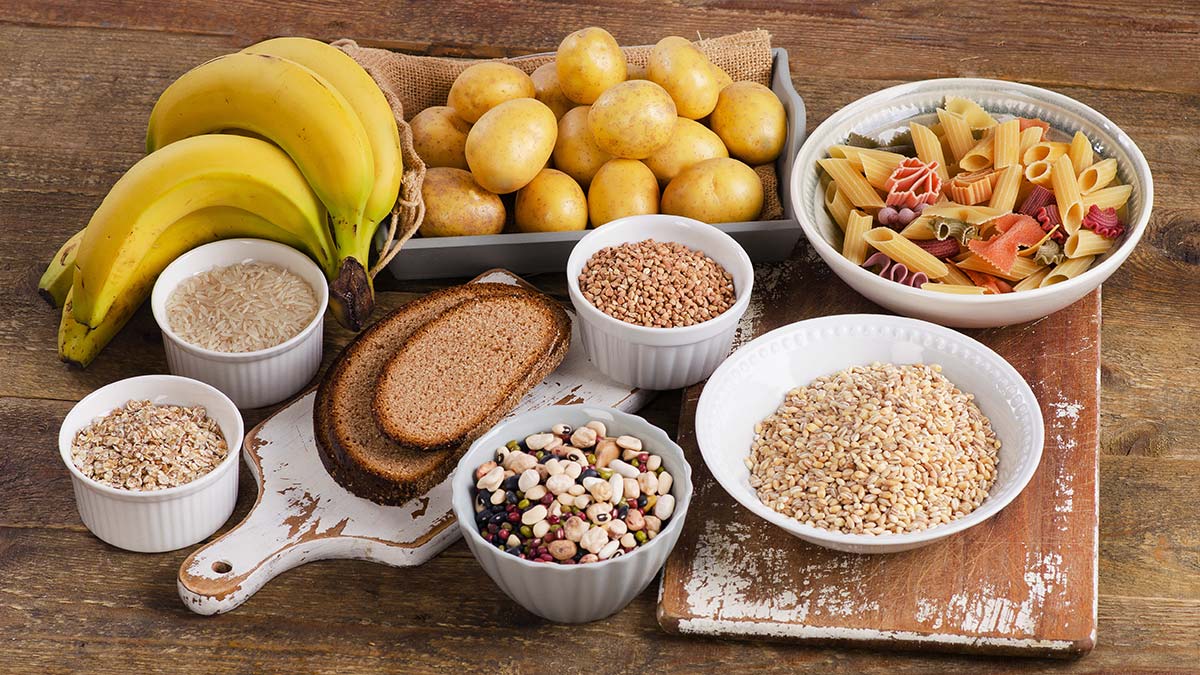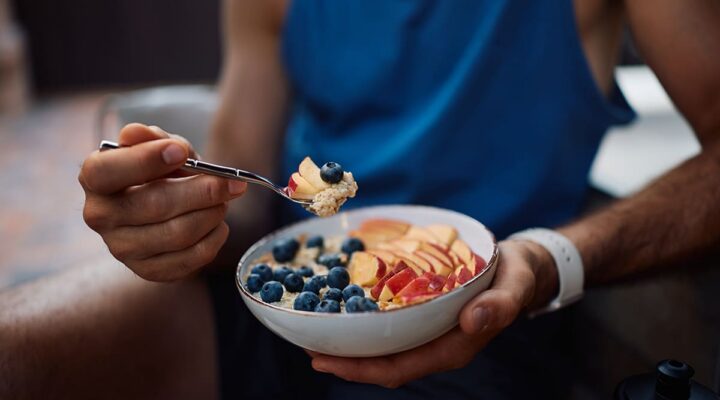Ask Dr. Adam: Are Low-Carb Diets Healthy?

In recent years, the online conversation around carbohydrates has become increasingly polarised, with passionate advocates on both sides of the debate.
From claims that low-carb diets can lead to rapid weight loss to concerns about their long-term health implications, it’s clear that the type and quantity of carbohydrates we consume is a topic that needs careful consideration.
As one of the three macronutrients that fuel our bodies, carbohydrates are a daily diet staple, but how essential are they, and can limiting them ever be a healthy choice?
To shed light on this complex issue, we turned to our resident health adviser, Dr. Adam, to learn more about the role of carbohydrates in our diets and the potential benefits, and drawbacks, of adopting a low-carb lifestyle.

What are carbohydrates?
“Carbohydrates are often misunderstood in the fitness community,” Dr. Adam notes. “At their core, they’re a group of macromolecules whose job is mainly to provide us with energy.”
He breaks dietary carbs down into two main types: simple and complex. “Simple carbs are the easy ones,” he explains, “like monosaccharides – think glucose, fructose and galactose. Then you have disaccharides, like sucrose (which is glucose and fructose), maltose (two glucose molecules) and lactose (which is glucose and galactose).”
Complex carbohydrates meanwhile, also known as polysaccharides, include starches found in foods like potatoes, rice and grains, where glucose molecules form long chains. “Carbs are essential in our diet,” Dr. Adam emphasises, “as they provide up to half of our daily energy.”
He continues: “For centuries, indigenous diets have relied on staples like maize, cassava, rice and wheat. While modern food processing has introduced refined carbohydrates – think sugar and processed grains – these staples are still vital energy sources for our day-to-day functioning.”
How would you define a low-carb diet?
Dr. Adam explains, “A diet is considered ‘low-carb’ if it cuts carbohydrate intake to around 30% of your daily energy. That’s down from the usual 40-45% we see in many diets.”
He points out that when people talk about low-carb diets today, they usually mean very low carbohydrate intake. “Often, that means consuming under 100 grams of carbs per day.” Ketogenic diets take this cull even further, often going below 50 grams and sometimes as low as 20 grams.
Are there any benefits to a low carb diet?
“It really depends on the person and their lifestyle,” Dr. Adam points out. “Carbohydrates are the body’s main fuel source, especially if you exercise. The more you move, the more carbs you need, which is why endurance athletes often load up on them for optimal performance.”
Carbs aren’t deemed ‘essential’ in the same way proteins and fats are, because your body can actually produce glucose when necessary. “Glucose is super important for fueling the body, particularly the brain,” he emphasises. “If you’re not getting enough carbs from your diet, your body can make them using proteins or fats.”
Low-carb enthusiasts argue that cutting back on carbs encourages the body to switch to fat as a primary fuel source. “It’s kind of a survival tactic,” Dr. Adam explains. “The body can adapt and keep functioning even without carbs, and switch to utilising fat for energy.”
However, he cautions that if you’re someone who exercises a lot, slashing carbs too much might backfire in the long-run: “Drastically cutting carbs could lead to fatigue, issues like RED-S and decreased performance,” he warns. “You really need to think about your lifestyle and what your body needs when considering a low-carb diet, as underfuelling is a real risk to your health.”
Could a low carb diet be helpful if weight loss is your goal?
“Yes, but not necessarily for the reasons people might think,” Dr. Adam explains. The logic behind a low-carb diet is that it helps you shed body fat by nudging your body to use fat for energy instead.
“While that’s somewhat true, a lot of it also boils down to behavioural changes,” he adds. “When you cut down on carbs, you naturally start avoiding foods that lead to overindulging, like biscuits, cakes,and bread. This often leads to a decrease in calorie intake without even trying.”

So, is it the low-carb diet itself that works, or is it just the reduction in calories?
“That’s a huge debate,” notes Dr. Adam. “The truth probably lies somewhere in the middle. People definitely eat less when they switch to low-carb diets, which affects their energy balance. But we can’t ignore the metabolic effects either.”
To illustrate his point, Dr. Adam says, “If you put someone on a low-carb diet without cutting calories, they’d need to make up for those carb calories with something else – usually more protein or fat.”
In the earlier days of low-carb diets, like the Atkins diet, the focus was on boosting protein and fat intake together. However, these days, modern versions like ketogenic diets often encourage a more unrestricted intake of fat.
“Research shows that if you decrease your protein intake and replace those carbohydrates with fat, it can significantly affect how your body processes energy,” says Dr Adam. “While you may burn more fat on a low-carb diet, you’ll need to pay attention to your overall fat consumption, as too much can lead to unwanted weight gain or other health issues.”
Is it worth me trying a low carb diet?
“My personal take? We shouldn’t get too caught up in black-and-white thinking, like being strictly low-carb or low-fat,” Dr. Adam says.
“It’s really important to realise that, although low-carb diets might offer short-term benefits, the key should be on overall dietary quality and sustainability,” he explains. “For many, a more balanced approach could be to ‘periodise’ carbohydrate intake.”
So what exactly does that mean? “It’s about having days with low carb and then days where you can enjoy a more normal carb intake,” Dr. Adam suggests.
This strategy can feel less restrictive, making it easier to stick with your eating plan over the long haul. Plus, it allows your body to adapt to different energy needs depending on the days you’re hitting the gym, supporting both your health and enjoyment of food.


















